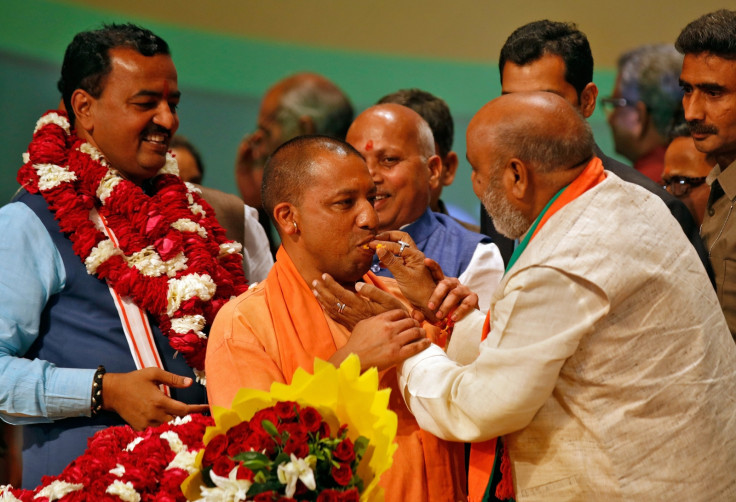Hindu cleric appointed to lead India's Uttar Pradesh expected to fan religious tension
Narendra Modi's pick of Yogi Adityanath marks a shift in his progressive approach.

A hard-line Hindu cleric has been appointed to lead India's most populous state, marking a shift in Prime Minister Narendra Modi's progressive agenda.
Yogi Adityanath, 44, was unveiled as the chief minister for Uttar Pradesh (UP) on Saturday (18 March) following Modi's surprise victory during assembly elections in the state a week earlier.
Adityanath's appointment baffled political commentators as the firebrand cleric's views are bound to clash with Modi's measured approach and that of their Bharatiya Janata Party (BJP).
At his swearing in on Sunday (19 March), local press reported Adityanath as saying: "I am confident that the state will march on the path of development" – a buzzword for Modi's pro-growth agenda – but Adityanath is expected to pursue his own course.
The priest-turned-politician follows an ideology of Hindutva, which seeks to establish the hegemony of Hindus in a country where roughly 15% of the population is Muslim and 2% is Christian.
He is known to stoke religious tensions, having made comments such as: "If given a chance, I will install Ganesh statues in every mosque," and claim "If they take one Hindu girl, we will take 100 Muslim girls," according to The Hindu newspaper.
He is also known for political intimidation and has twice spent time in prison for inciting religious riots. In one of those riots four years ago, 60 people were killed and Adityanath is still facing a murder charge for the deaths.
His policies include reviving the construction of a controversial temple at Ayodha – the site of a razed Muslim mosque from the 16th century – that sparked bloody conflict in the 1990s.
He is also expected to pursue an agenda of closing slaughterhouses mostly operated by Muslims. Hours after his appointment, the Hindustan Times reported that slaughterhouses in Atala and Naini have been closed.
Milan Vaishnav, a senior fellow in the South Asia programme at the Carnegie Endowment for International Peace, told the New York Times he believes Adityanath's appointment was done to appease India's right-wing factions who some see as responsible for Modi's overwhelming election victory.
"The only conclusion one can draw is that he [Modi] feels the base is mobilised and that they helped deliver this, and that there would be pushback if they did not get something in return," Vaishnav said.
"I think it's a regressive choice, and a lost opportunity for the prime minister."
© Copyright IBTimes 2025. All rights reserved.






















